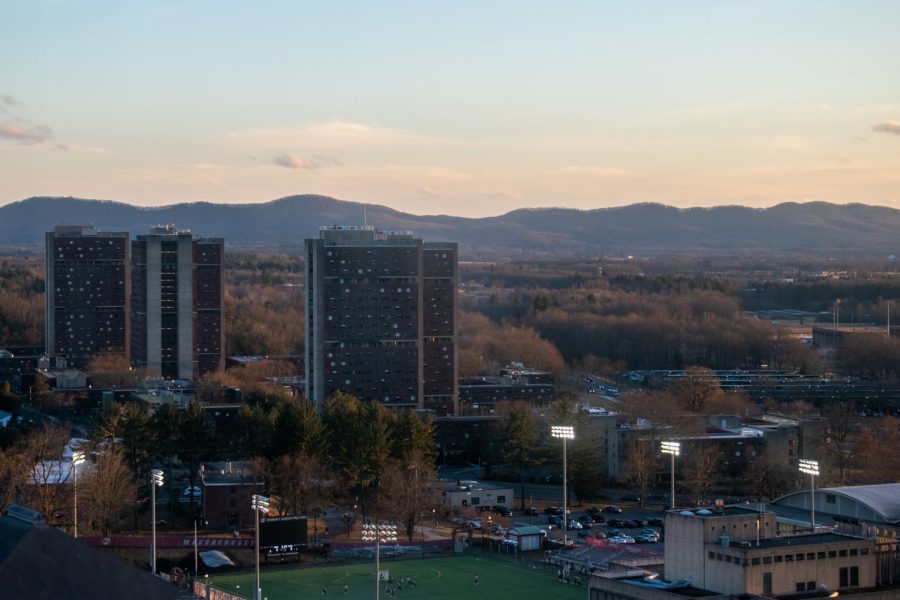The University of Massachusetts released a portion of the data from their 2021 Campus Climate Survey on Wednesday. The data showed that most students, 90 percent, feel that they belong at UMass, at least to some extent.
Despite that, the data by demographic exposed some issues within the campus culture. The data showed the most bleak results for Black students, with 26 percent of Black students selecting that they ‘to no extent’ feel that they belong at UMass. That number was also high for students with a mobility-related disability, at 22 percent.
This data, which is available on the Office of Equity and Inclusion’s website, is only the first of several reports which the University will release. The rest of the data will be released in the fall and will touch on issues including the campus’ racial climate and campus inclusion.
“We felt like it was most important to share this theme first,” said Nefertiti Walker, vice chancellor for diversity, equity and inclusion. “Because, when you think about inclusion, you can’t have inclusion if people don’t have a sense of belonging.”
According to the University, the Office of Academic Planning and Assessment is still in the process of analyzing the rest of the data, which is why they are waiting to release it. “It’s not because of withholding anything,” Ebru Kardan, the senior director of diversity communications and events, said. “We’re just getting things out as we develop them.”
Walker also stressed the heightened importance of fostering a sense of belonging among the student body in the wake of several events last semester: the racist email that was sent out to many Black student organizations and the widespread protests against campus sexual assault. Both events were still recent when the survey was open, from Nov. 3 to Nov. 29.
The survey had a relatively high participation rate, at 41.6 percent of the entire campus community, including faculty and staff. “That is way above national averages for the sorts of surveys,” Walker said.
The results also included responses to three other questions about support systems, mentors and whether students feel that they can share their viewpoints. The results were generally high, with 87 percent of undergraduates saying they had a support system at least to some extent, 70 percent saying they had mentors or role models, and 86 percent saying they felt they could share their point of view.
However, these questions also show Black undergraduates struggling the most, with 42 percent reporting having no mentors or role models on campus. Black undergraduates were closely followed by Latinx undergraduates, of which 39 percent said that they had no mentors or role models on campus. Similarly, 42 percent of students with a mobility-related disability reported having no mentors or role models at the University.
“That’s a pretty tough pill to swallow,” Walker said. “But this is what we want to know. We want to understand these perceptions and these feelings so that we can do better.”
While the University reached a good chunk of the UMass community, there was a subset of staff that responded to the survey at particularly low rates: the service maintenance and skilled crafts staff members. Because of the low response rate, the research team decided that the data was not representative and excluded it from the report.
Walker attributes the minimal survey participation from those groups to the campus’ staffing crisis. “Participating in this could not be of utmost importance, because they were just trying to ensure that they had enough staff to keep the dining commons running,” Walker said.
The University plans to try to better gauge the Service Maintenance and Skilled Crafts workers’ feelings regarding the campus climate in other ways, including outreach and focus groups over the summer.
This survey was the second time that UMass has done a campus-wide campus climate assessment, the first one being in 2016. Originally, the University planned to do the survey every four years, but decided against holding one in 2020 because of the presidential election and the pandemic.
“It was hard, because 2016 was obviously the Trump election, people had very strong feelings either way, and that came out in the data,” Walker said.
UMass plans to use this data to assess where to put their time and resources, according to Ed Blaguszewski, executive director of strategic communications. “As we head into the fall, we have a whole series of next steps, in terms of speakers and workshops,” Blaguszewski said.
These next steps will begin with what Walker calls “climate conversations,” where the Office of Equity and Inclusion will meet with different colleges and groups on campus to talk through their data.
“One of the interesting aspects of working at a university or attending one is the dynamic of the population, right? The students turn over every four years,” Blaguszewski said. “And so on the one hand, it’s important for us to let people know that we’ve been working on this stuff and that we’ve made progress. At the same time, as a student in the here and now, your experience is our campus climate.”
Sophia Gardner can be reached at [email protected] and followed on Twitter @sophieegardnerr.




















